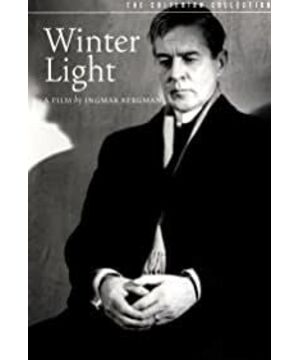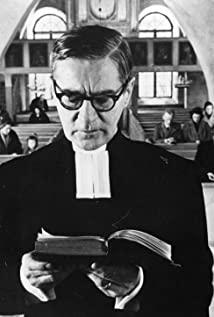Bergman’s film has a very obvious Nordic indoor theater style. The location of "Winter Light" is limited to a small town. The activities of the characters surround the church in the town. The main plot conflict occurs in the small rest after the church. Indoors, this obvious spatial compression gives the viewer a sense of oppression from the outside, making it easier for the gaze to penetrate the subtle network of the characters in the play. In addition, Bergman is good at using the precise grasp of the dialogue of the characters and the meticulous depiction of the faces to achieve the effect of directly pointing to the heart. For example, in the 50 to 60-minute long dialogue between the heroes and heroines of "Winter Light", Thomas detailed his dislike for Marta. As a silent listener, Marta expressed his inner feelings in the subtle changes in his face, which amazed the audience. Master Yu's perfect presentation of such a feeling of love and hatred, pity and disappointment coexist. The use of these film techniques has paved the way for the director to convey his beliefs about love and being loved, the loss of faith and persistence.
First of all, it is undeniable that the film is about the love of God, where is God, and why does it not respond to the suffering of people in the world? In the film, Parson was in trouble because of China’s possession of an atomic bomb, and eventually committed suicide. This way of pure intellectuals martyring for their ideas seems incomprehensible to us, but Westerners who fell into a crisis of faith after World War II generally But it is not uncommon. Thomas, as a pastor, had the responsibility to fill Parson’s heart with the love of God, but the fact is that he could not even convince him. God took away his beloved wife. There is no explanation for all the sufferings he has endured. In winter, both the external environment and the inside of the characters are cold and dim. If "God no longer exists", everything seems to be a matter of course, but at the same time, all meaning is lost, and living has become an almost absurd self-torture. , So Parson chose to end early.
However, just staying at the discussion of God is obviously not the reason why Bergson's films have such a large universal value. In the final analysis, "Winter Light" is about the physical world and the subtle interpersonal relationships. At the end of the long letter to Thomas, the heroine Marta wrote: "I love you, I live for you, possess me and enjoy me. Behind my false self-esteem and independence, there is actually only one wish: to be allowed to be Live personally.” Love gives Marta a meaning of survival, which is beautiful and sensible, even though Thomas is still so cold as to say how he hates what Marta has done for him, which makes her almost painful. Absolutely, but at the end of the movie, Marta was willing to be the only listener of Thomas's sermon, even though she did not believe in God. In a sense, Thomas is Marta’s God, a loved one who does not respond.
However, Thomas and Marta, who have faith, both refused to fall. This allowed them to persevere and make love full of people's hearts. This is the reason why the movie is named "Winter Light". Difficult to grasp, but at the same time warm and hopeful. The film mentions that the source of Jesus’ suffering was resentment for God’s abandonment. It can be seen that the pain that love is not available for a long time has a long history. Get salvation and hold on to hope.
Art has always given people a sense of beauty and hope, and Bergman’s movies are the same. God is hidden, and love is returned to the world. In different cultural contexts and backgrounds of the times, it seems that it is difficult for us to appreciate the ideas conveyed by his films. Then we start from the human heart and human nature that we have figured out, and get our own experience of love and being loved. This is the value of a good movie.
View more about Winter Light reviews











